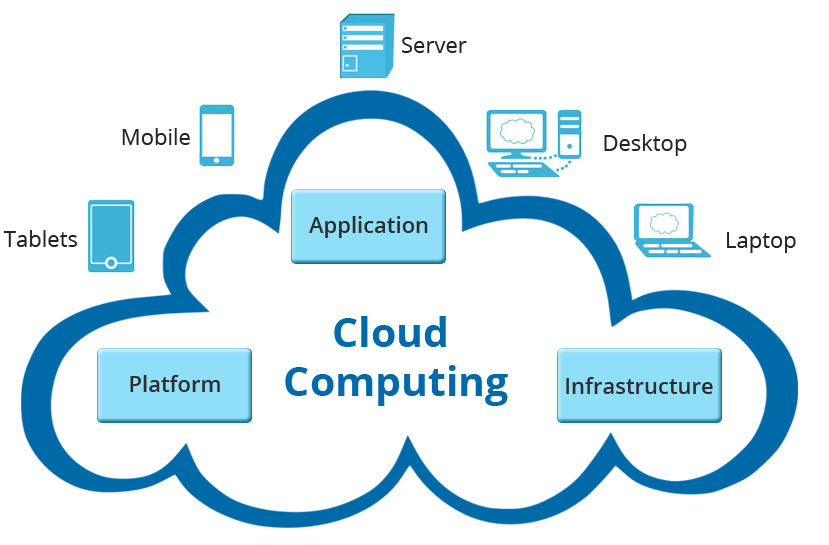Introduction:
Cloud computing has emerged as a game-changer for businesses, providing a flexible and scalable solution to meet their computing needs. In today’s modern business landscape, efficiency and scalability are paramount for success, and cloud computing offers precisely that. This article explores how cloud computing empowers organizations by driving efficiency and scalability, enabling them to streamline operations, reduce costs, and adapt to changing business demands.
Enhanced Efficiency through Cloud Computing:
Cloud computing offers businesses a range of tools and services that enhance operational efficiency. Firstly, it eliminates the need for physical infrastructure and maintenance, as computing resources are hosted remotely in the cloud. This eliminates the costs and complexities associated with maintaining on-premises servers, allowing businesses to focus their resources on core activities.
Furthermore, cloud computing provides easy access to computing resources on demand. With the ability to scale up or down as needed, businesses can dynamically allocate resources based on workload demands. This agility ensures optimal resource utilization, reducing wastage and increasing overall operational efficiency.
Cloud-based collaboration tools also play a vital role in enhancing efficiency. Teams can collaborate in real time, accessing shared documents and applications from anywhere, eliminating time-consuming email exchanges and version control issues. Moreover, cloud-based project management tools enable seamless coordination and efficient task allocation, improving team productivity.
The cloud also enables the automation and streamlining of various business processes. Through cloud-based workflow automation tools, businesses can eliminate manual and repetitive tasks, increasing efficiency and reducing human errors. Automated workflows ensure smooth and consistent operations, freeing up employees’ time to focus on more strategic and value-added activities.
Additionally, cloud computing empowers businesses with robust data analytics capabilities. By leveraging cloud-based analytics platforms, organizations can gain valuable insights from their data, enabling data-driven decision-making. This facilitates efficient resource allocation, targeted marketing strategies, and improved customer experiences.
Scalability for Business Growth:
One of the key advantages of cloud computing is its inherent scalability. Traditional IT infrastructure often struggles to keep up with sudden spikes in demand or expanding business requirements. In contrast, the cloud offers virtually unlimited scalability, allowing businesses to scale their resources up or down quickly.
With cloud computing, businesses can easily accommodate growth and handle peak periods without investing in costly hardware upgrades or risking system failures. Scaling resources on demand ensures businesses can meet customer demands promptly, resulting in improved customer satisfaction and retention.
Scalability in the cloud also enables businesses to experiment and innovate with minimal risks. By leveraging cloud platforms, businesses can rapidly deploy and test new applications, services, or features without committing to large upfront investments. This flexibility encourages experimentation and promotes agile development methodologies, driving innovation and staying ahead of the competition.
Additionally, cloud-based solutions offer geographic scalability, allowing businesses to expand their reach into new markets without the need for physical infrastructure in each location. This opens up opportunities for global expansion and provides a competitive advantage by catering to diverse customer needs.
Furthermore, cloud computing enables businesses to scale their storage and computing resources as their data requirements grow. With the ever-increasing volume of data generated, cloud-based storage solutions offer the scalability needed to accommodate large datasets without worrying about capacity constraints. This scalability ensures seamless data management and analysis, facilitating data-driven insights and informed decision-making.
Cost Efficiency and Financial Benefits:
Cloud computing offers significant cost-saving opportunities for businesses. By eliminating the need for upfront investments in hardware, businesses can avoid capital expenditure and shift to operational expenditure models. Students can avail the best services of do my assignment for me by the help of qualified qriters. Pay-as-you-go pricing models allow businesses to pay only for the resources they consume, ensuring cost efficiency.
Additionally, cloud computing reduces costs associated with infrastructure maintenance, software updates, and security management. Cloud service providers handle these responsibilities, freeing up internal resources and allowing businesses to focus on core competencies.
The scalability of cloud computing also contributes to cost savings. Businesses can scale their resources based on demand, avoiding overprovisioning and reducing unnecessary expenses during periods of low activity. This ensures optimized resource utilization, resulting in cost-efficient operations.
Moreover, cloud computing reduces the need for extensive in-house IT infrastructure and technical staff. By leveraging cloud services, businesses can offload the burden of managing complex IT environments, reducing staffing costs and relying on the expertise of cloud providers.
Furthermore, the cloud enables businesses to achieve economies of scale. Cloud service providers have vast infrastructure and resources, allowing them to spread costs across multiple clients. This shared infrastructure model lowers costs for businesses, making enterprise-grade technologies accessible even to small and medium-sized enterprises.
Cloud computing also offers cost benefits in terms of data storage. With cloud-based storage solutions, businesses can avoid the expense of maintaining physical servers, data centers, and backup systems. Instead, they can leverage the secure and scalable storage options provided by cloud service providers, paying only for the storage they use.
Conclusion:
Cloud computing has become a crucial enabler of efficiency and scalability in modern businesses. By harnessing cloud technologies, organizations can streamline operations, enhance collaboration, and adapt quickly to changing business needs. The benefits of cloud computing go beyond cost savings, extending to improved agility, scalability, and the ability to drive innovation. As the business landscape continues to evolve, embracing cloud computing is a strategic decision that empowers businesses to thrive in an increasingly digital and competitive environment.
In conclusion, cloud computing is a catalyst for efficiency and scalability in modern businesses, offering a wide range of benefits that drive operational excellence and enable growth. Embracing cloud technologies can provide businesses with a competitive edge, allowing them to focus on their core strengths while leveraging the flexibility and scalability of the cloud. By adopting cloud solutions, businesses can achieve enhanced efficiency, seamless scalability, substantial cost savings, and gain a competitive advantage in the modern business landscape.

